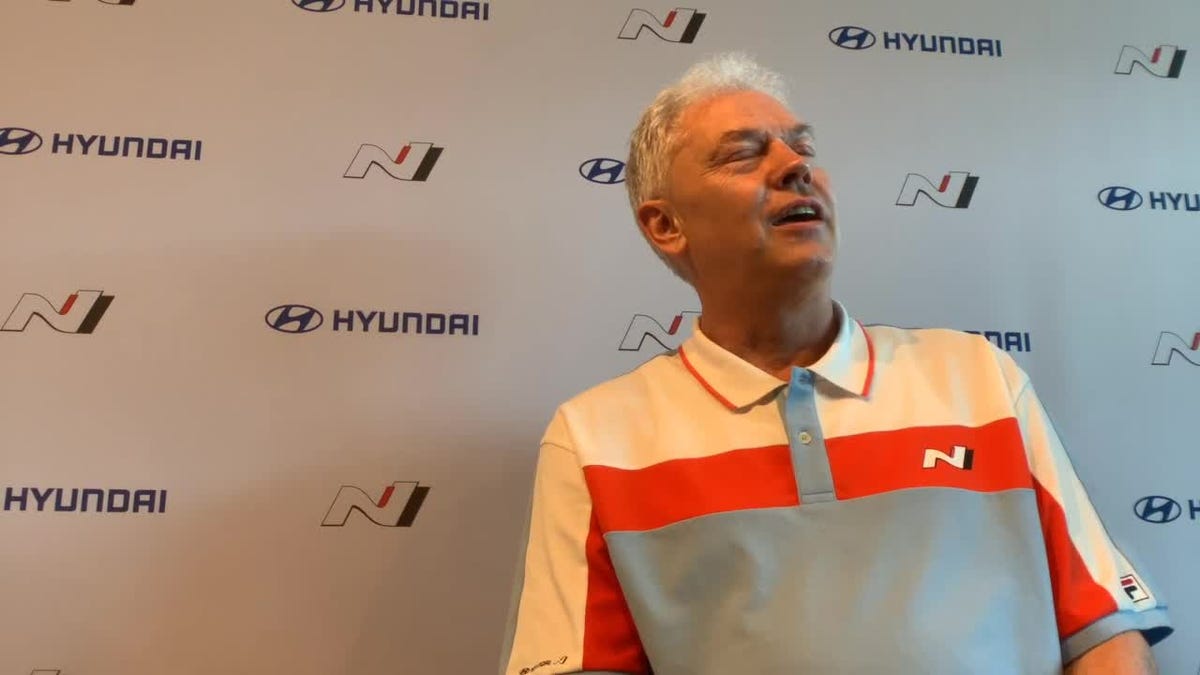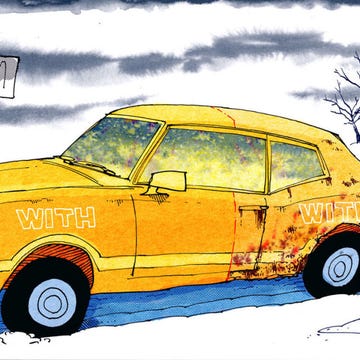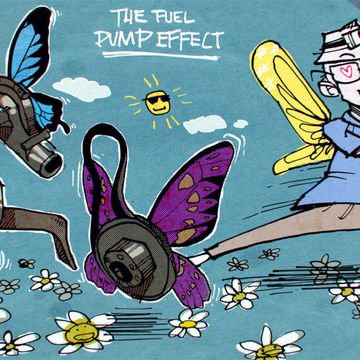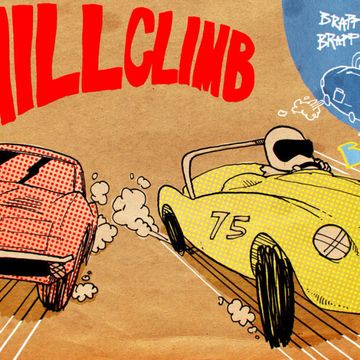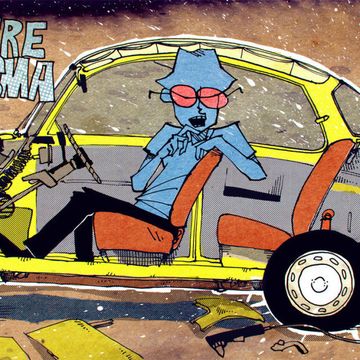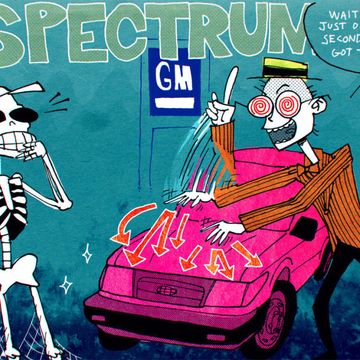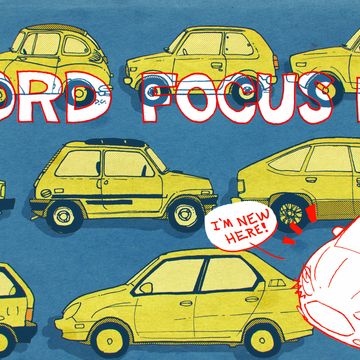Reality TV has car shops all wrong. When you watch the handful of "car build shows," producers feed you the same predictable cold-oatmeal characters. First, we're going to go over what you're used to seeing on camera. Then, we're going to contrast that to a real custom car shop so you'll see the difference.
In reality garage shows, a veteran presenter waves his arms around like he's in a Creed music video. To prove he is "street," the presenter, who got his start as a junior production assistant, will point his finger defiantly at the viewer and explain the upcoming build. While the presenter peacocks, general-purpose metal music screeches in the background. The presenter will end whatever he is talking about with the phrase, "That's what I'm talking about!"
True custom shops are quiet. Our real-world example is Bruce Henn's Garage in Hamburg, Pennsylvania. Bruce Henn's is a full service auto shop and inspection station, specializing in unique builds (Full Disclosure: Bruce is assisting RCR with the Vagabond Falcon). Cars roll out of this unassuming building ready to destroy tires and track times. This is an auto shop that reality TV tries to capture, but always gets wrong.
Let's start with music. Whenever you get establishing shots of shop floors on TV, you hear Parental-Advisement Thrash Metal in the background. Wrong. Real custom shops are more likely to play smooth jazz and bubblegum pop. Happy music. Walk into Bruce's and that's what you'll hear.
Reality garage shows dub in sound effects of beach grinders eating rebar, mallets hitting piles of lawnmower blades, and office telephones ringing. Sometimes the fake background sounds aren't even correct. Here's how it happens: A senior producer says to a junior producer: "It's a busy shop. Make it sound busy!" The junior producer goes to the editing computer, slams in a CD marked "101 Sound Effects," and starts ripping. He doesn't know what a real auto shop sounds like...so he chooses "chainsaw," "jackhammer," "burnout," and "restaurant dining area."
Real life auto shops aren't loud at all. The loudest piece of equipment is the air impact hammer and even that's only used when needed. In Bruce Henn's Garage, the dominant noise is a Port-A-Cool 2000 commercial evaporating fan.
Walk into a real-world auto-shop. You will think: "Where are all the tools?" Do you know where they are? They're put away and organized. Even oil quarts are lined up neatly. In a reality show, a set producer (or director) will spread tools around. "Mechanics use tools," the director thinks, "gotta make sure the viewers see them so they know." Then, the producer fills up a rolling tool cart with miss-matched gear and makes sure it's present in the background of every shot; breaker bars, torches, slide-hammers, channel locks, chain binders. Why do producers like seeing chain binders all the time? Binders have nothing to do with engine repair, but they are big and nasty looking...so on the tool rack they go.
Bruce Henn walks with purpose. I was taking pictures and I was unknowingly in his way. I pull up my tripod and step aside.
"Sorry," I say.
"You're good," says Bruce. He adjusts his eyeglasses, walks into the office and closes the door softly behind him. If this was a reality show, a director would tell Bruce to get some contacts lenses, drop to the floor and do 20 fast pushups so his muscles pop more for the take, reset the scene, but curse Mr. Regular out this time, slam the office door and throw a prop bottle made of sugar-glass across the room.
Real mechanics are technical-minded and practical problem solvers, not actors. The easiest emotion to portray on film is anger. Everyone's been angry, every knows how to act angry. We've been doing it since we learned how to lie. Acting interested, or concerned or thoughtful is difficult without practice. Acting takes years of practice and only to a few does it come naturally.
Reality shows are popular with networks because they have low-production costs. "Just film people working on cars." The problem comes when people working on cars don't speak. Imagine the last time you worked on your car. How often are you talking? Not much. If you have a friend with you, you'll ask for tools and maybe talk about other things, but conversation will stop and start as you pause to think. Even when you are talking, you're not orating, you're not lecturing, you're certainly not speaking to an audience. You're speaking in half sentences. That kind of chit-chat doesn't work on TV.
On top of that, the presence of a camera changes behavior. Introduce a camera into a conversation and suddenly people talk and act very wooden; they freeze. Their speech becomes self-conscious and deliberate. You might say, "Just act normal," but your subject can't. The camera is a demon, sucking all the life out of the shop floor. As a producer, you are left with the only emotion a non-actor can mimic: anger.
Even that is a problem because mechanics are happy people, especially independents like Bruce Henn. He's working his dream job and everyone brings him amazing cars and happy stories. Mechanics and builders spend their weeks on builds that will make enthusiasts happy for the rest of their lives. That amount of good-vibes leaves them centered, content and satisfied.
Inside the office at Bruce Henn's Garage are two friendly dogs. They don't have spiked collars. They don't growl or show teeth. They lounge about on the floor or on a leather couch. I sit on the couch next to one. The dog was asleep and didn't wake when I sat down. I reached over to pet the dog. The dog wakes, sniffs my hand, realizes I don't have any treats, and goes back to sleep.
"The dogs hear the UPS and FedEx trucks from a block away," says Bruce's mother who handles the books and the phone. "When deliveries come, they [the dogs] run to the door because the drivers always bring treats!"
Back in the shop, a customer comes in with a Noble M12, a road-going cheat-code with a turbocharged Ford 3.0L V6 making 352hp. The M12's 2,380lb body gets to 60 in just 2.5 seconds. What's the problem? Electrical issue. Bruce talks pleasantly with the owner. More accurately Bruce listens more than he talks.
If reality garage shows were more accurate, you'd see footage of smiling customers, hear relaxing music, fan's humming and avuncular conversations of past and future car projects. You wouldn't hear shouting or see forced drama, but that doesn't make for good TV, does it?

